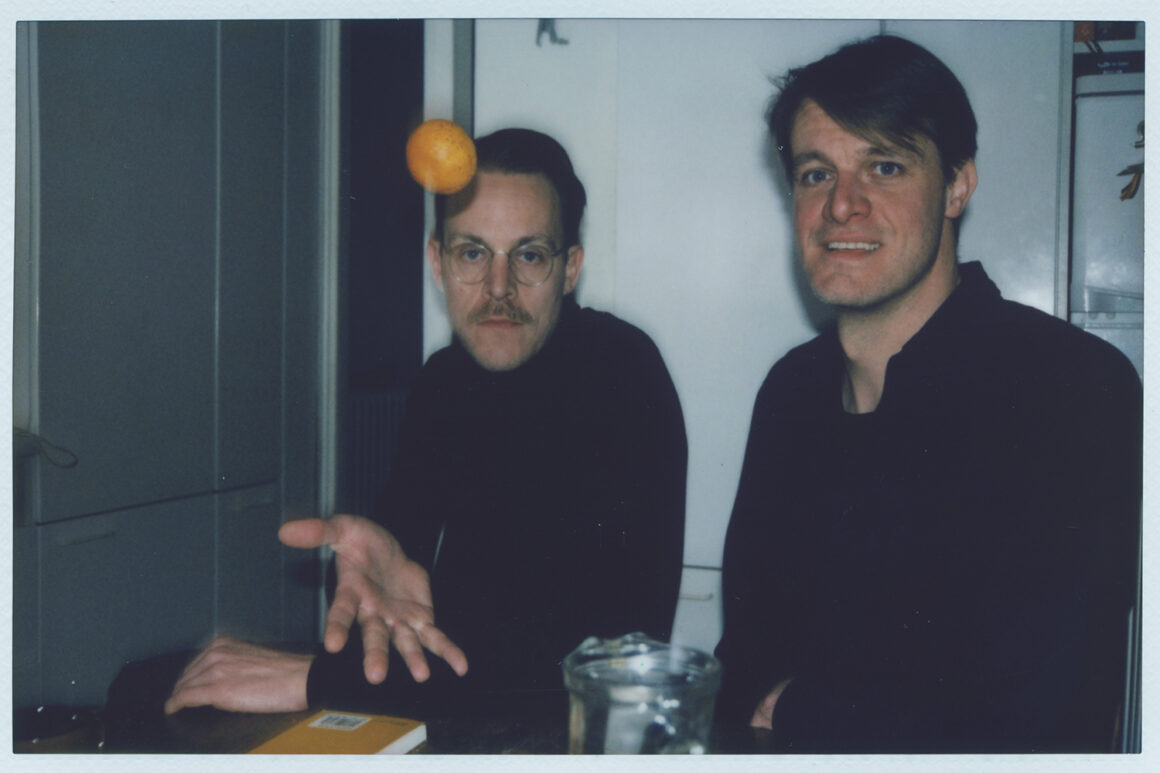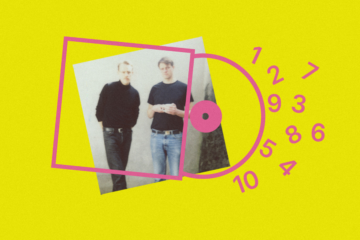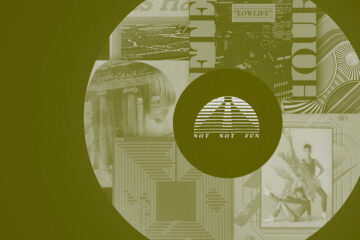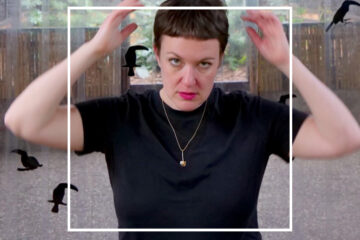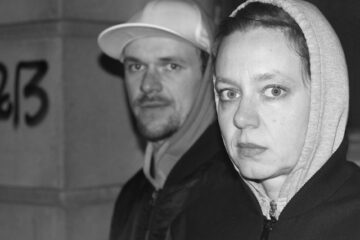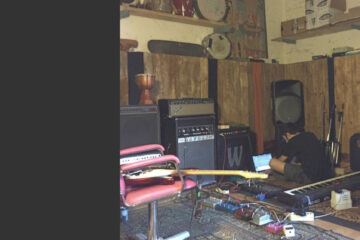Like an echo from the depths of the eighties: The songs on the album »Love And Language« sound as if Stacks recorded them at a dark hour in the ruins of a church with a disco ball above the altar. If it weren’t for the sacred, expansive vocals, this sound would seem abandoned by humans. » How the vocals sound is the essence of the band«, says Jan Matthé. His brother Sis and him are the musicians behind Stacks.
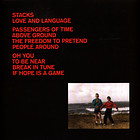
Love And Language
Synthesizers create wide surfaces in the sound of the duo. On the voice is always reverb. A kind of overpowering voice. »Sis started constructing it on his first solo Stacks album in 2012, which was fittingly called Voices.« A trail of echoes, reverb and vocoded space thus emerges as Stacks pitches and stretches the vocals. »The sacred quality comes from the traces of digital dust that happens through the layering, it’s out of our hands,« says Jan Matthé.
Which fits all too well with this sound. But at least someone is still speaking from this disturbingly hypnotic sound. When in »The Freedom To Pretend« a melody from the synthesizer alternates with a piano, all thoughts can be lost and only sink into that. The word »ethereal« was invented exactly for such moments.
Was nur zu gut zu diesem Sound passt. Aber immerhin spricht noch jemand aus diesem beunruhigend hypnotischen Klang. Wenn in »The Freedom To Pretend« eine Melodie aus dem Synthesizer sich mit einem Klavier abwechselt, lassen sich alle Gedanken verlieren und nur noch darin versinken. Das Wort »Ätherisch« wurde genau für solche Momente erfunden.
Melodies to sink into
Work on »Love And Language« had been dragging on for a year when Knekelhuis boss Mark Van De Maat asked if Stacks wanted to release something on the label. They spent six more months editing the individual songs into an album. »In some way, finishing a larger project like this is in its margins always a race against changes in yourself, but besides this everything went smooth,« says Jan Matthé. Mostly, he says, they are just very patient people. The recordings took place in their own studio in St. Lauri, a neighborhood in the south of Antwerp. Situated between a velodrome and the city’s poorest street.
»In some way, finishing a larger project like this is in its margins always a race against changes in yourself.
Jan Matthé (Stacks)
»The album was finished when the files were taken out of our hands when we went mastering in Amsterdam at the end of last year, a day after we changed the final order of the songs.« Out of the speakers during mastering, the songs sounded good. Kate Bush and the Pet Shop Boys were names that came up. The list of influences reads longer on Stacks, however: Talk Talk, Durutti Column, Tears for Fears, Moebius, Roedelius, Cocteau Twins and Prefab Sprout are all named by Jan Matthé. Which is all true and not true. Because Stacks have their very own sound, in which they conjure all these sounds, but the music of the duo touches again differently. More profound.
Ever since their teenage days in the nineties, the two brothers knew they wanted to make music. Soon they started a hardcore band, practicing in a dusty room behind the local music store, The Golden Touch. »Good times, and we never looked back since.«
Pop-not-Pop-Songs
The fact that their sound is so distinctive, so unique, is due to this long time together: »It feels like an ongoing thing, but we probably distilled 25 years of playing together (in bands) for the first time succesfully on »Our Body Memory,« the previous album.« That was the point when Stacks decided to work together and equally on an album, as a real duo with full attention.
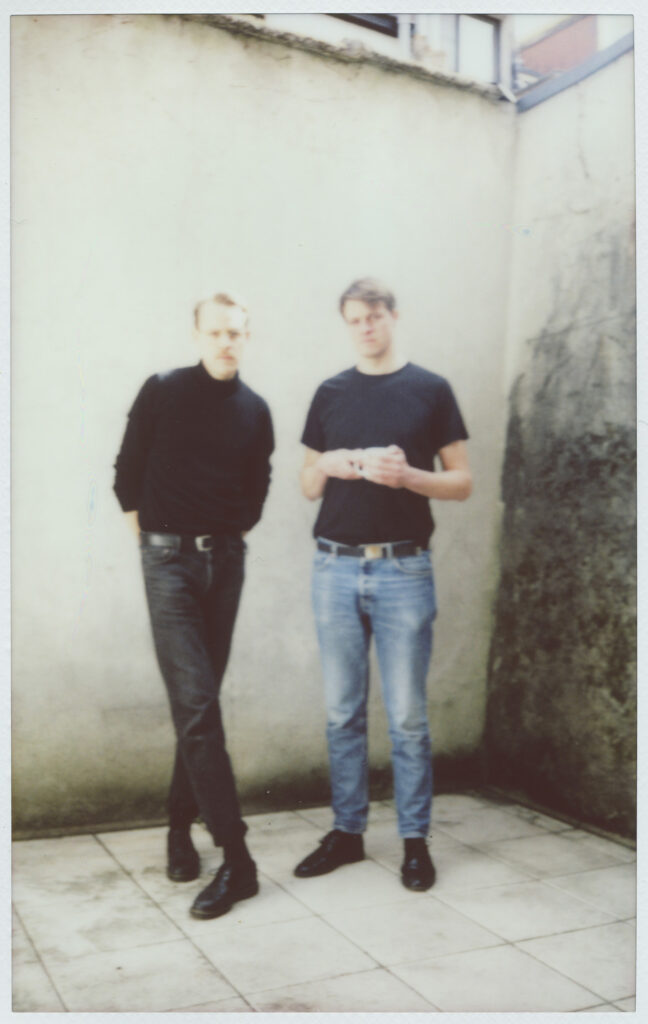
They collected various demo recordings and discarded ideas from the previous album, combining the results into ten favorites. In the end, eight songs made it onto »Love And Language«. Perhaps the poppiest number: »People Around«, which started out as a fast, light New Wave piece, but ended up turned down to a different beat.
And sure, this is pop music. Darkly sparkling. With an irresistible charm. The label describes it as a »pop-not-pop« album. »I prefer pop music that stays out of the hands of schooled musicians, therefore: pop-not-pop«, says Jan Matthé. To immediately quote the British rock band Wire with their »Rules of Negative Self-Definition« from 1977: » No solos, no decoration, when the words run out, it stops, no chorusing out, no rocking out, keep to the point, no Americanisms«. Their music is pop music because it’s directed outward, Matthé says. »Towards the world and the listeners inside it«. Their music is an echo that no one can escape.

